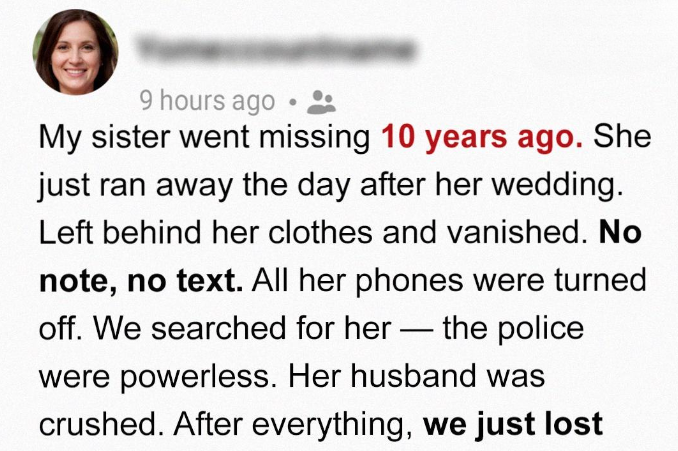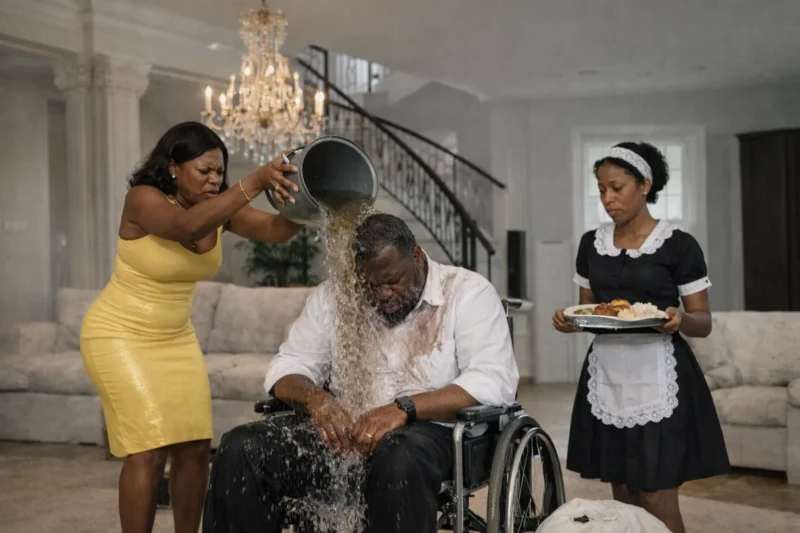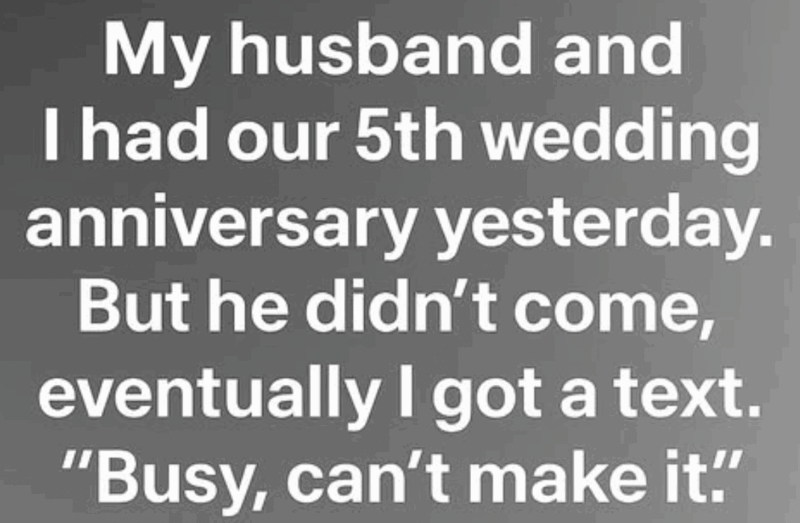I was walking out of the pharmacy with my 7-year-old daughter, Emma. Life had been hard ever since my wife passed away eight months ago. Grief was always present, and balancing work with parenting on my own left me exhausted most days.
As I helped Emma into the backseat of our car, I noticed someone near the bus stop at the edge of the parking lot. A man in his late fifties, wrapped in a thin coat, sat quietly. His face showed signs of time and hardship. In his lap lay a skinny tabby cat, its fur tangled, ears twitching in the cold air.
Just as I opened the driver’s door, the man stood and walked toward us. I felt a bit uncertain—these moments can sometimes be unpredictable. He stopped a few feet away, his hands trembling slightly, maybe from the cold or hunger.
“Sir,” he said, his voice rough but calm, “I’m sorry to bother you, but… could you take my cat?”
I froze, unsure if I heard correctly. “Take your cat?”
He nodded, eyes cast down. “I can’t keep her warm anymore. I haven’t eaten in two days, and I don’t know where I’ll end up tomorrow. But she deserves better than this.”
Emma had slipped out of the car again and crouched beside the man to pet the cat. The animal leaned into her touch, purring softly.
“Her name’s Miso,” he added. “She’s gentle. Never hurt a soul.”
There was a look in his eyes—like he was giving away the last bit of comfort he had. I hesitated. I’d never had a cat, and the idea of taking on more responsibility during such a chaotic time felt overwhelming. But watching Emma hold the cat so gently made the choice feel simple.
“Alright,” I said. “We’ll take her.”
He looked surprised, then slowly bent to kiss the cat on the head. “Thank you,” he whispered. “You’re saving her.”
I offered him a few granola bars and a bottle of water from our bag, but he gently refused. “Give that to someone else. You’ve already given me more than enough.”
On the way home, Emma held Miso like she was the most precious thing in the world. That night, the cat curled up at the foot of her bed, as if she had always belonged there.
In the weeks that followed, Miso adjusted quickly to our home. She brought peace not only to Emma but to me as well. Her calm presence made the house feel less empty. She’d curl beside Emma as she slept and often rested next to the framed photo of my late wife, as if she understood.
Then, one snowy morning, I found a small envelope in our mailbox. No return address—just my name written neatly.
Inside was a short note:
“Thank you for taking Miso in. I watched as you left that day. I had nothing left but her, and knowing she’s safe brings me peace. I’ve found a place at a shelter and started doing small jobs. Maybe things will improve. —L.”
I stood there holding the note, feeling both moved and uncertain. Had I done enough? Was he really okay?
Days passed, then weeks—but I couldn’t let it go. I felt like I’d left something unfinished.
One morning, after dropping Emma at school, I returned to that same pharmacy lot. I checked the bus stop and nearby shops. At a gas station, a cashier remembered him.
“Yeah, quiet guy. Used to sit there. Gave his cat away to someone, I think. Haven’t seen him since.”
“Do you know his name?”
“No, but he used to come by the soup kitchen two streets over.”
I visited the kitchen that day. The woman in charge, Linda, recognized him right away.
“We call him Larry. He came in for months with that cat. Always made sure she ate before he did. I think he’s in a halfway program now.”
Something about his care for Miso stayed with me. “Do you know where I can find him?”
“I can check.”
A few days later, Linda called me. “He’s at the Pine Hollow Shelter, just outside of town.”
That Saturday, I left Emma with my sister and drove out.
The shelter was small, behind a church. I explained why I was there and was asked to wait. Ten minutes later, Larry came into the lobby, now wearing a donated coat and looking a bit stronger.
“You found me,” he said, eyes wide.
I nodded. “I got your note. I wanted to make sure you were okay.”
He smiled. “I’m better. Thank you.”
We talked for over an hour. I told him how Miso had helped Emma sleep again, how she rested near my wife’s photo, how she made our house feel alive. He listened quietly, visibly touched.
“I thought giving her away would break me,” he said. “But it gave me a reason to keep going.”
That was the beginning of something neither of us expected.
I started visiting Larry regularly. We’d grab coffee, talk in the parking lot, share small stories. He told me about working as a mechanic, losing his job after an injury, then losing his home, and eventually, everything else.
I spoke to a friend who owned an auto shop and arranged an interview. Larry hesitated—he didn’t want a favor—but eventually agreed. After a few weeks, he was back doing what he knew best. His hands were greasy again, and his eyes were brighter.
The day he got his first paycheck, he bought Emma a toy for Miso and handed me a note:
“None of this would’ve happened if you hadn’t stopped. You saved more than just a cat.”
Three months later, Larry moved into a small apartment above the shop. It wasn’t much, but it was his. He asked if he could visit Miso one weekend. I said yes.
Emma greeted him at the door. Miso ran straight to him, curling around his leg, purring. He sat on the floor, whispering quietly to her. I didn’t hear the words, but I could feel the peace in that moment.
Later that evening, Emma asked, “Can Larry come over again?”
I smiled. “Anytime he wants.”
That winter, Larry helped us shovel snow. In spring, he fixed my old lawnmower. That summer, he taught Emma how to change a tire. He became a part of our lives—not replacing what we had lost, but adding something new and meaningful.
Looking back, it all started with a single question:
“Could you take my cat?”
That moment changed everything.
Sometimes, the smallest acts of kindness lead to the greatest changes. You think you’re helping someone—but they help you too.
If this story moved you, feel free to share it with someone who still believes in second chances.




